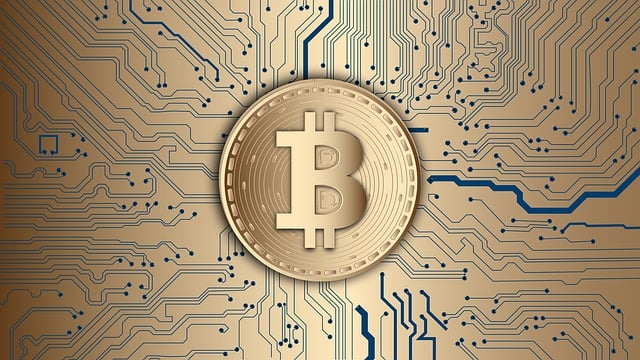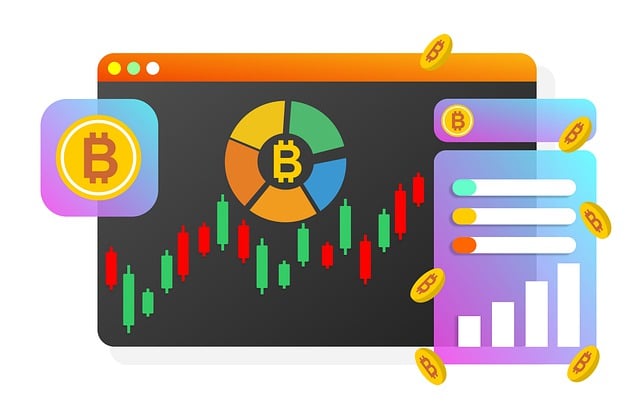Decentralized Finance (DeFi), leveraging blockchain technology, is revolutionizing traditional banking by offering direct access to various financial services without intermediaries. Using smart contracts and peer-to-peer transactions, DeFi promotes financial inclusion, transparency, and security while mitigating credit risk through innovative methods like collateralization. This decentralized approach holds immense potential to democratize global finance, disrupt lending/borrowing, trading, and insurance, foster financial inclusion, and create a more robust, efficient financial ecosystem.
Discover the intriguing world of decentralized finance (DeFi) and unlock the power of default – a concept that’s revolutionizing global finance. This article explores how DeFi, with its disruptive nature, leverages blockchain technology to democratize access to financial services. We delve into its implications, from enhancing financial inclusion to potentially reshaping traditional banking models. By understanding these trends, we can anticipate the future impact of decentralized finance on our global economic landscape.
- Understanding Decentralized Finance: Unlocking the Power of Default
- The Rise of DeFi and Its Disruptive Nature
- Exploring the Future: Implications and Potential Impact on Global Finance
Understanding Decentralized Finance: Unlocking the Power of Default

Decentralized Finance (DeFi) represents a paradigm shift in the financial landscape, unlocking unprecedented opportunities through technology. At its core, DeFi aims to democratize access to financial services by eliminating intermediaries like banks. By leveraging blockchain and smart contracts, DeFi platforms enable users to borrow, lend, trade, and earn interest on their assets without relying on traditional institutions. This decentralized approach not only enhances financial inclusion but also fosters transparency and security.
The concept of default in DeFi is crucial yet multifaceted. In the context of lending, for instance, it refers to borrowers’ inability to repay loans as per agreed terms. However, unlike traditional banking, DeFi platforms mitigate credit risk through various mechanisms. These include collateralization, where lenders require borrowers to stake assets as security, and dynamic interest rate adjustments based on market conditions. Such innovations tap into the collective power of a distributed network, ensuring resilience and fostering a more robust financial ecosystem.
The Rise of DeFi and Its Disruptive Nature

In recent years, decentralized finance (DeFi) has emerged as a disruptive force in the financial landscape, harnessing the potential of blockchain technology to redefine traditional banking and investment models. This innovative approach eliminates the need for intermediaries like banks, allowing users to have greater control over their funds through smart contracts and peer-to-peer transactions. The rise of DeFi promises to democratize finance, making it more accessible and transparent to individuals worldwide.
By leveraging open-source protocols and distributed ledgers, DeFi platforms offer a wide range of financial services, including lending, borrowing, trading, and yield farming. This decentralized nature fosters trustless interactions, enhances security through cryptographic verification, and reduces the risks associated with centralized points of failure. With its potential to revolutionize cross-border transactions, provide financial inclusion, and generate new revenue streams, DeFi is poised to reshape the global economic system.
Exploring the Future: Implications and Potential Impact on Global Finance

The future of global finance is being reshaped by the potential of decentralized finance (DeFi). By leveraging blockchain technology, DeFi promises to democratize access to financial services, eliminating intermediaries and empowering individuals with greater control over their money. This shift has significant implications for traditional banking models, challenging established institutions to adapt or risk becoming obsolete.
The impact of DeFi could be profound, potentially disrupting lending, borrowing, trading, and insurance. It enables peer-to-peer transactions, fosters financial inclusion in underserved communities worldwide, and offers innovative investment opportunities beyond the scope of conventional markets. As DeFi continues to evolve, its ability to reshape global finance and create a more inclusive, transparent, and efficient financial landscape remains an exciting prospect.
Decentralized finance (DeFi) is reshaping global financial systems by leveraging blockchain technology, offering greater accessibility and transparency. As DeFi continues to evolve, understanding its default mechanisms becomes crucial for unlocking its full potential. The future of finance lies in navigating this disruptive force, embracing its implications, and harnessing its power to create a more inclusive and efficient global financial landscape.
